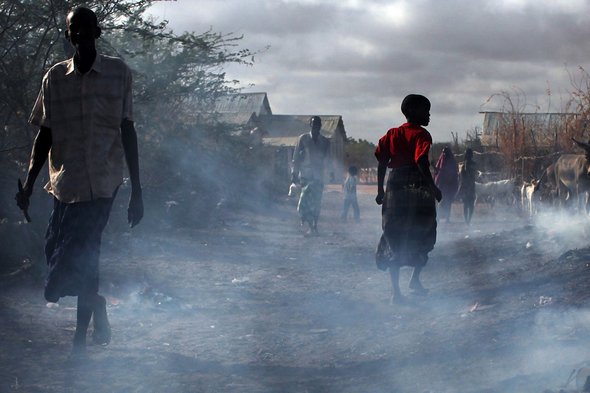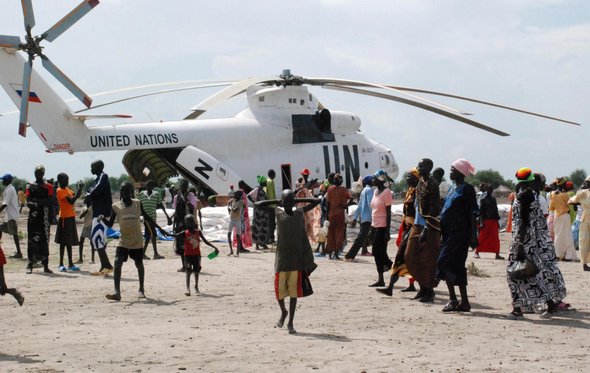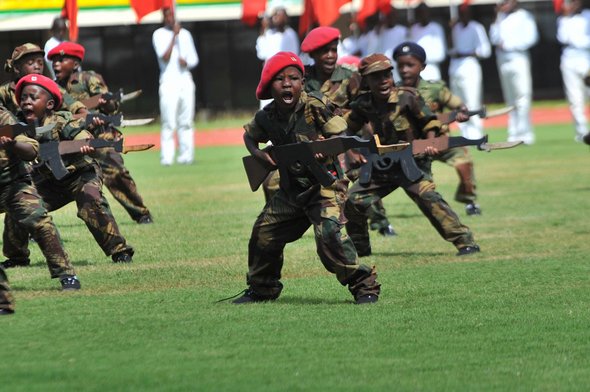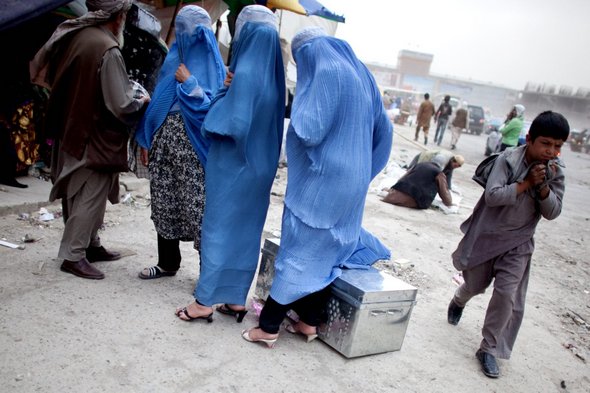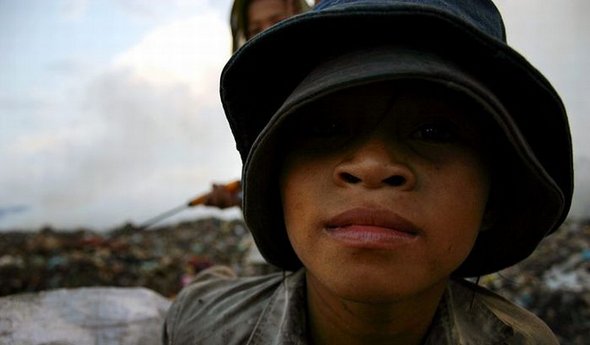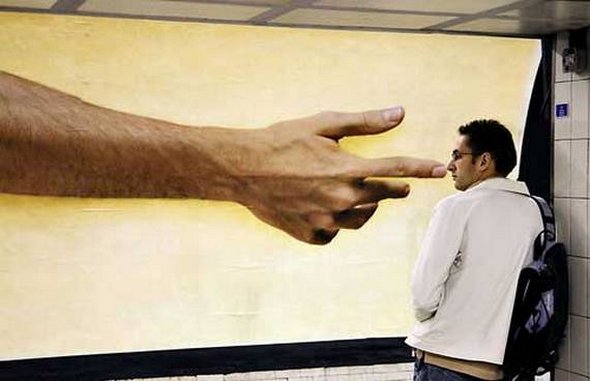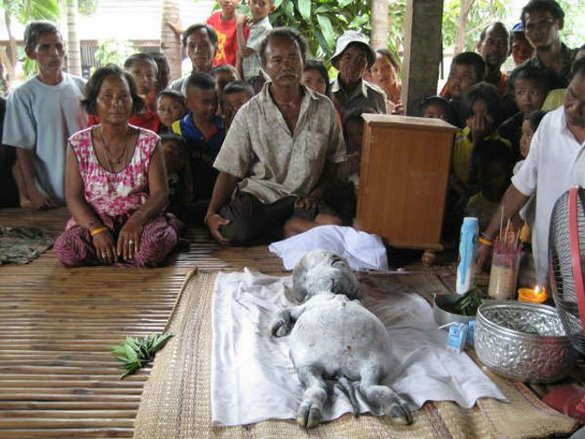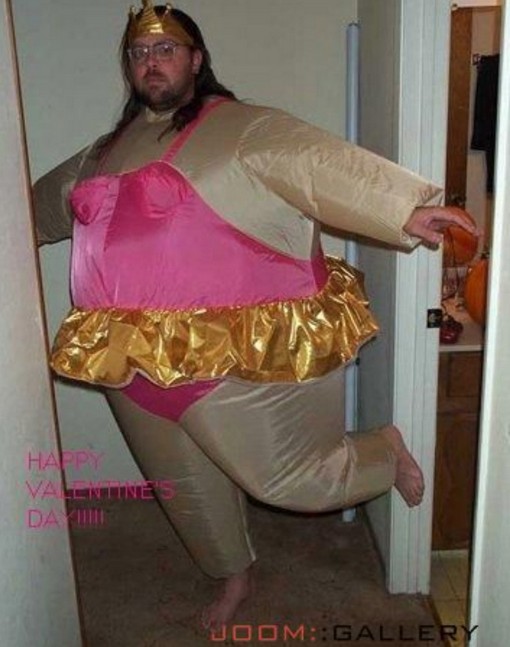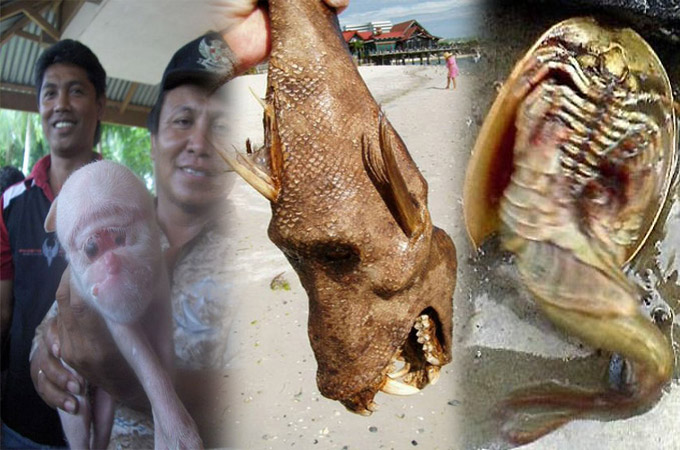Touching Photographs of Animal-Human Bonds: Ashes and Snow
About the show:
Gregory Colbert’s Ashes and Snow is an ongoing project that weaves together photographic works, 35mm films, art installations and a novel in letters. With profound patience and an enduring commitment to the expressive and artistic nature of animals, he has captured extraordinary interactions between humans and animals. So impressive that it captures attention of large audience, who have seen this as a special project of artistic photographs and films that show animals in a magnificent way, the way you have not been able to see them before.
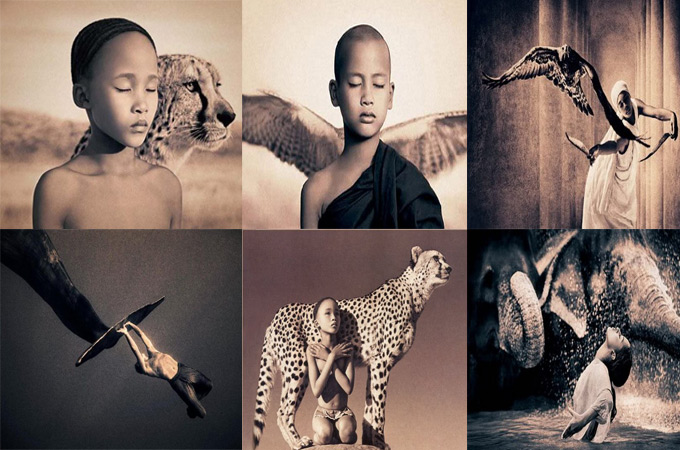
The photographic artworks of Gregory Colbert explore the poetic sensibilities of animals in their natural habitat as they interact with human beings. No longer shown as merely a member of the family of man, humans are seen as a member of the family of animals. None of the images have been digitally collaged!
Authors word:
“In exploring the shared language and poetic sensibilities of all animals, I am working towards rediscovering the common ground that once existed when people lived in harmony with animals. The images depict a world that is without beginning or end, here or there, past or present.”
—Gregory Colbert, Creator of Ashes and Snow
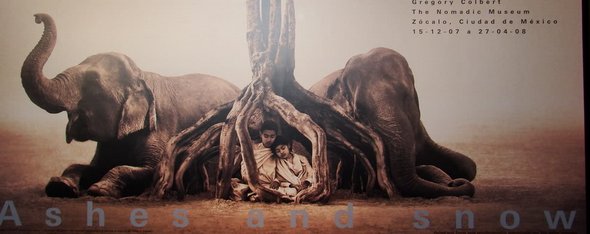
Other aspects of the show
His 21st-century bestiary includes totemic species from around the world. Since he began creating his singular work of Ashes and Snow in 1992, Colbert has undertaken photographic and filming expeditions to locations such as India, Egypt, Burma, Tonga, Sri Lanka, Namibia, Kenya, Antarctica, the Azores, and Borneo.

The title Ashes and Snow refers to the literary component of the exhibition—a fictional account of a man who, over the course of a yearlong journey, composes 365 letters to his wife. The source of the title is revealed in the 365th letter. Colbert’s photographs and one-hour film loosely reference the traveller’s encounters and experiences described in the letters. Colbert, who calls animals “nature’s living masterpieces” chose to film animals in their native habitats in an effort to be true to each animal’s voice. The film can be viewed as a work of art as well as a poetic field study. The film was edited by two-time Oscar winner Pietro Scalia. It is narrated by Laurence Fishburne (English), Ken Watanabe (Japanese), and Enrique Rocha (Spanish). Musical collaborators include Michael Brook, David Darling, Heiner Goebbels, Lisa Gerrard, Lukas Foss, Nusrat Fateh Ali Khan, and Djivan Gasparyan.
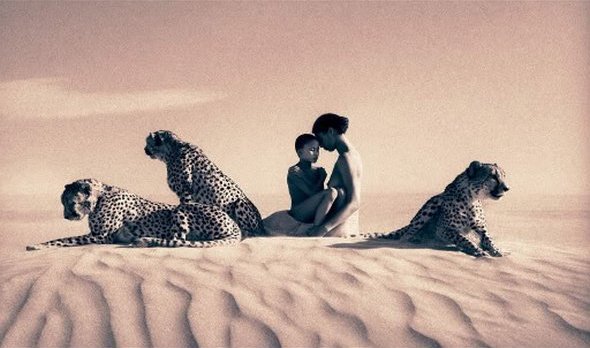
The Ashes and Snow exhibition includes more than 50 large-scale photographic artworks, a one-hour film, and two short film “haikus”. None of the images have been digitally collaged or superimposed. They record what the artist himself saw through the lens of his camera. While Colbert uses both still and movie cameras, the images are not stills from the film.
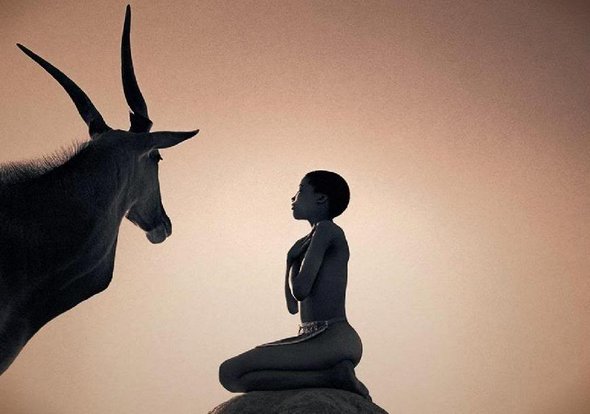
The animal subjects of the photographs and films include interactions with both wild animals and also those that have been habituated to human contact. These mixed media photographic works marry umber and sepia tones in a distinctive encaustic process on handmade Japanese paper. The artworks, each approximately seven feet by twelve feet, are mounted without explanatory text so as to encourage an open-ended interaction with the images.

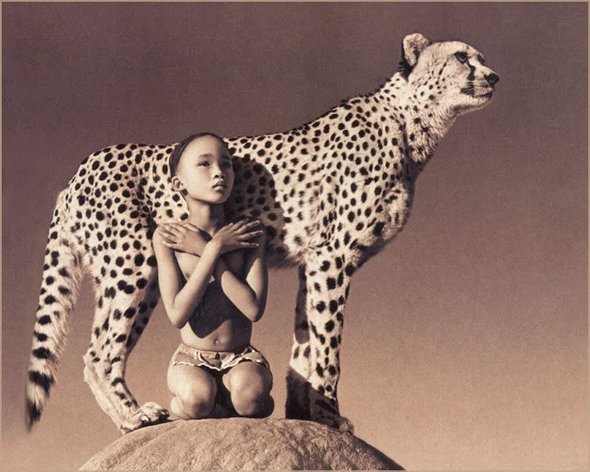
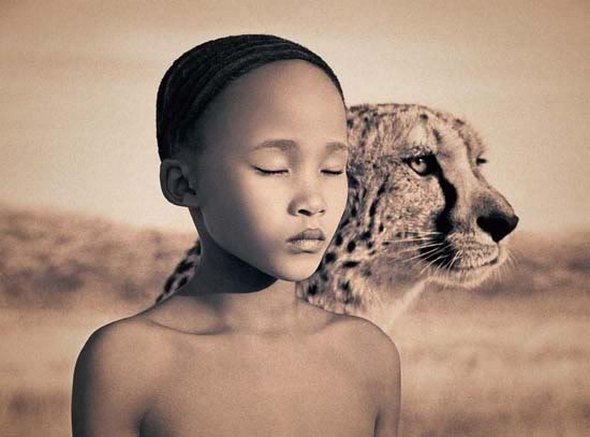

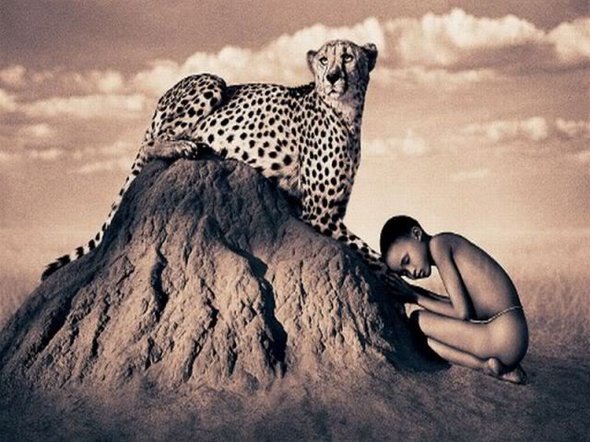

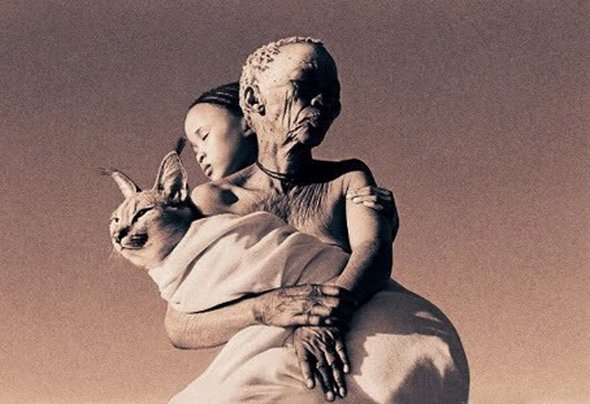
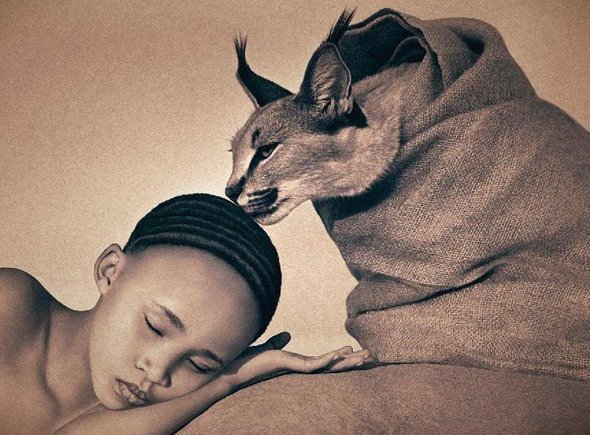
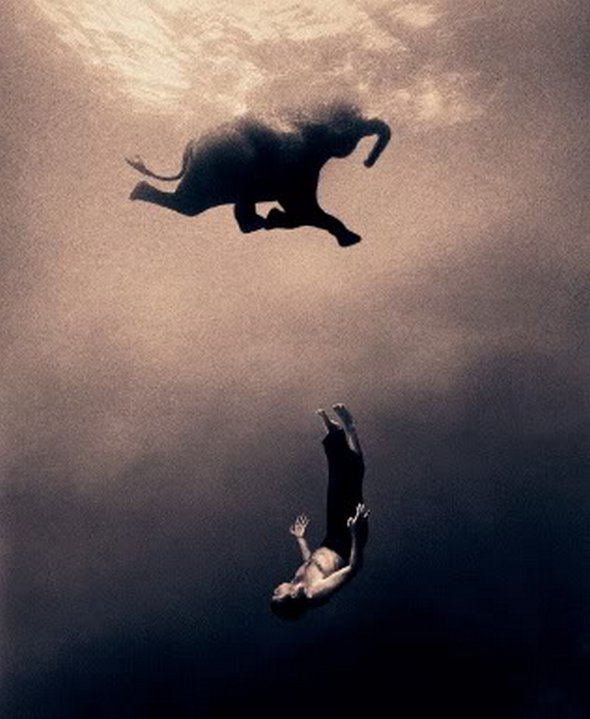
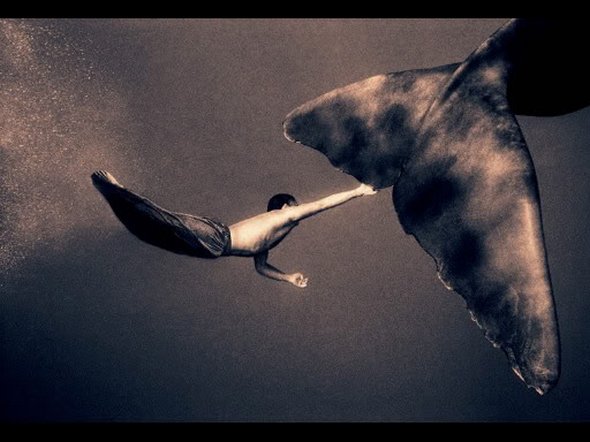
You MUST see cool photo galleries handpicked for YOU!
13 Buildings That Seemingly Could Collapse In A Second
Designing building is a complex job that architects perform in order to provide us with the beauty, simplicity and functionality we expect in modern times. Sometimes, during their endeavors, architects stray away from the concepts we are used to in modern architecture and create unbelievable buildings that seemingly could collapse in a second. What makes them design such funny buildings? Is it to express rebellion to simple shapes that are forced today in construction? Or maybe they try to attract more attention to their work? Maybe the answer is that they construct funny buildings out of sheer boredom…Whatever the truth is, the result is astonishing, amazing and in one word grotesque creations of modern world architecture that are tourist attractions of some of the largest cities around the world.
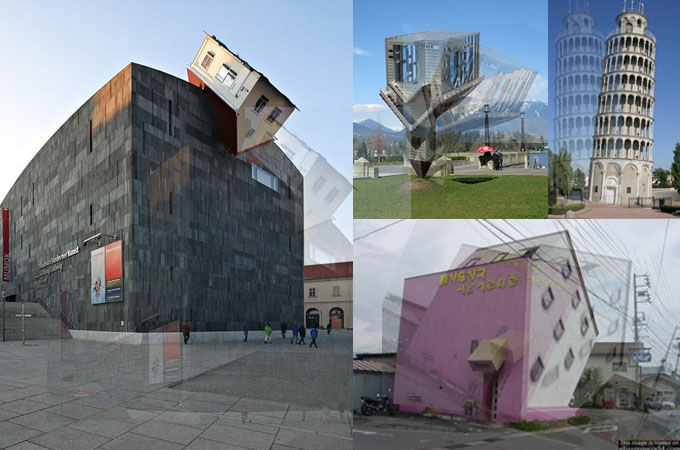
Device to Root Out Evil (Vancouver, Canada)
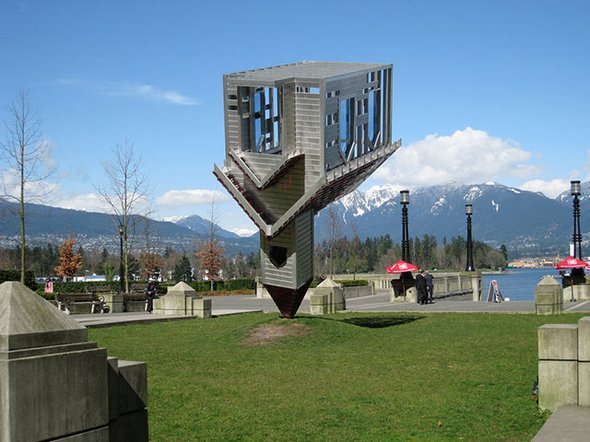 Image source
Image source
The Crooked House (Sopot, Poland)
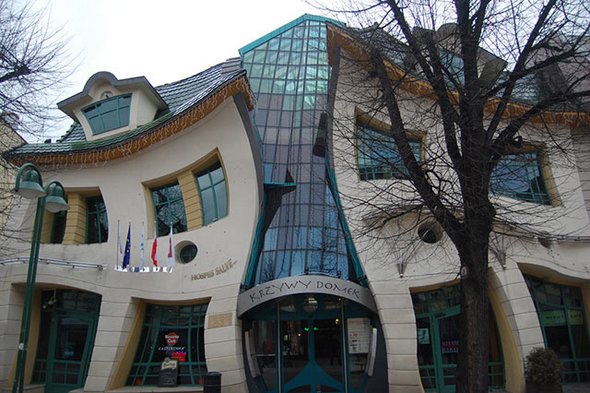 Image source
Image source
Erwin Wurm: House Attack (Viena, Austria)
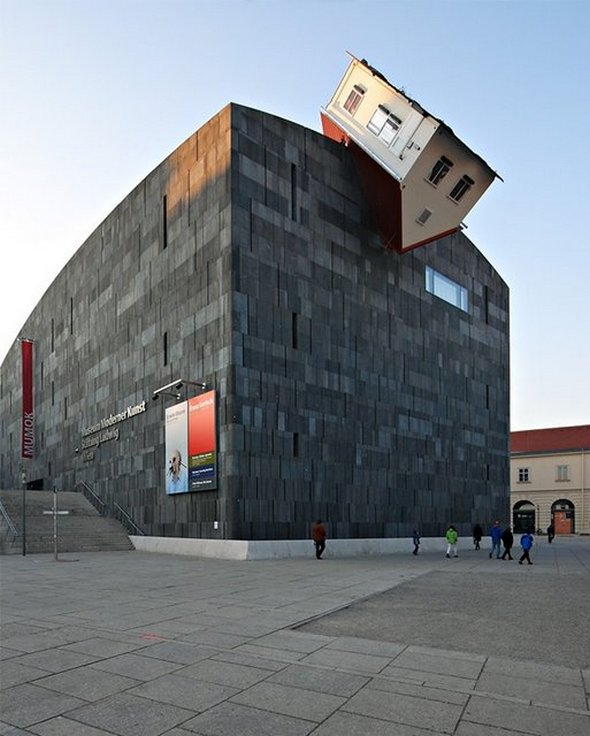 Image source
Image source
Chain Building (Groningen, Netherlands)
 Image source
Image source
Japanese weird building
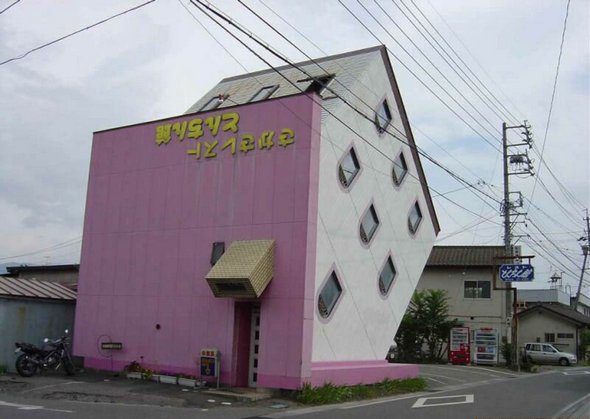 Image source
Image source
Crazy hotel (Spirit, Bratislava)
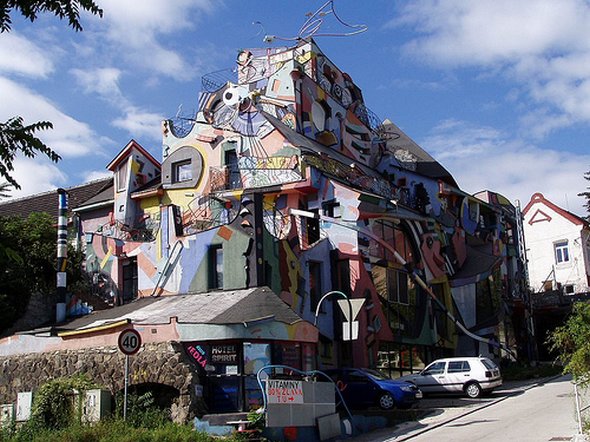 Image source
Image source
Cubic Houses (Rotterdam, Netherlands)
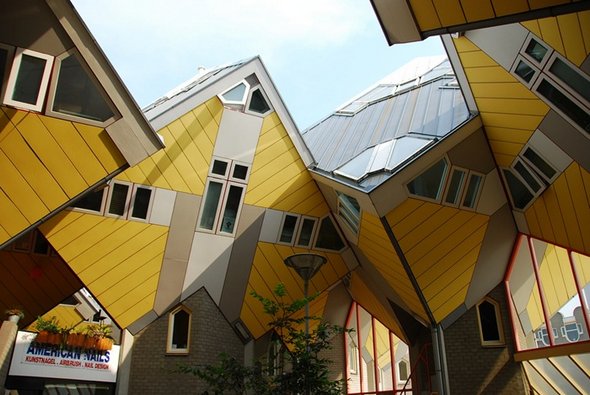 Image source
Image source
Leaning Tower (Chicago, USA)
You MUST see cool photo galleries handpicked for YOU!
NG Photography: 50 Stunning Contest Winning Photographs
National Geographic always comes up with quality stuff when it comes to photography. NG photographers repeatedly show off their talent for photography and deep understanding and patience for capturing some of the worlds most sunning scenes which are the unrepeatable source of everyday inspiration for all the lucky visitors who have discovered their amazing work. The stunning scenes they capture have the widest variety of motifs ranging from adventure and exploration travels, landscapes, underwater photography to animals, people and cultures and history.
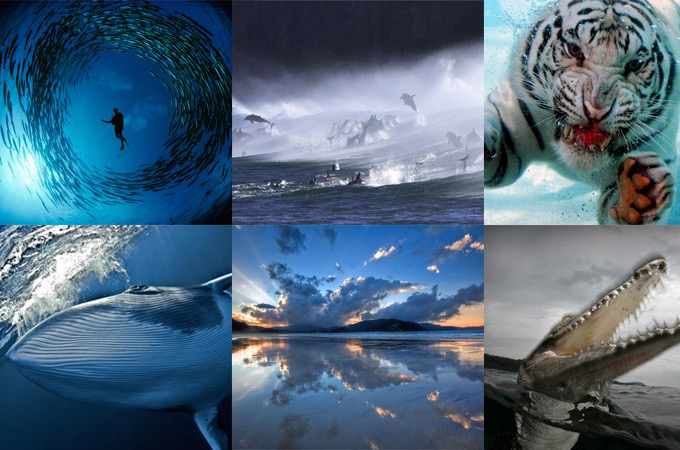
National Geographic organize frequent photo contests and carefully select best photographs of the day, week and finally announce monthly contest winners. These is a collection of such 50 stunning contest winning photographs by NG that will, undoubtedly, take you breath away.

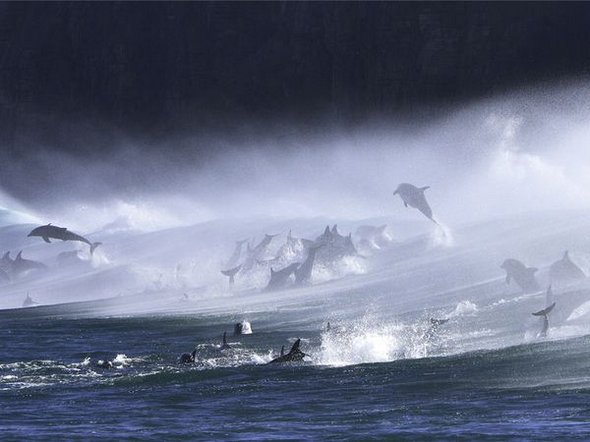

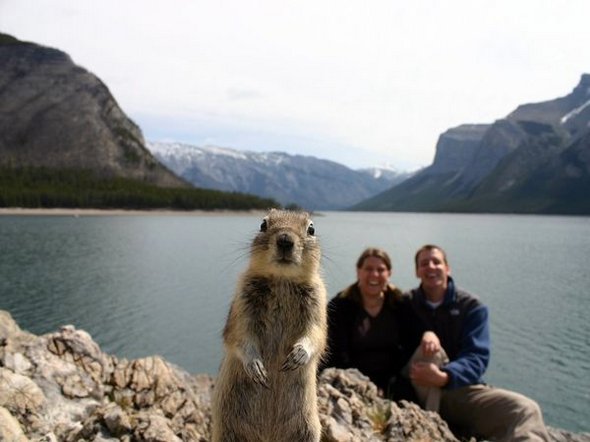
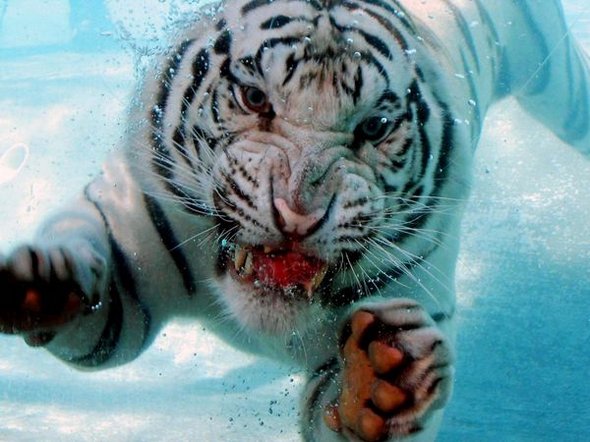


You MUST see cool photo galleries handpicked for YOU!
60 Most Failed Countries of the World: Postcards From Hell
During the last half-decade, the Fund for Peace has been putting together the Failed States Index, using a battery of indicators that determine how stable (or unstable) a country is. As a result, we have taken the top 60, or should we say worst 60 Failed Countries of the World.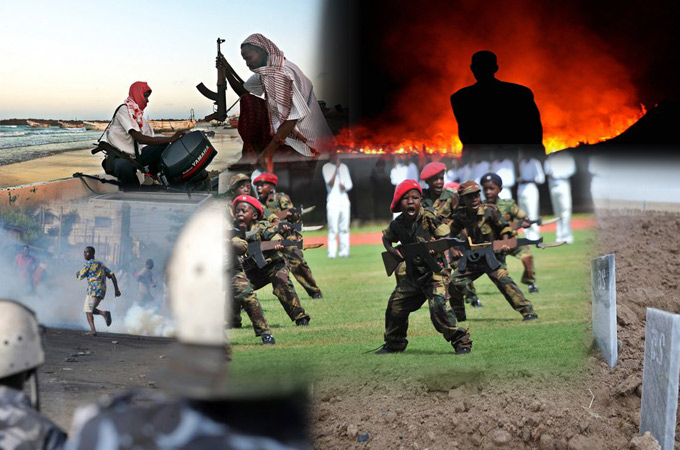
But as much as we admire the stats and numbers there is no better way but as the photos that demonstrate the degree of failure of a country. The best test is the simplest one, which is that you’ll only know a failed state when you see it.
And these photographs captured by the all seeing eye of the camera are, as they seem, true postcards from hell. As an example, we’ll make a rough start with country No.1: Somalia.
Hint: Click on image to see the larger version
1. SOMALIA
Somalia has topped the Failed States Index for the last three years — a testament not only to the depth of the country’s long-running political and humanitarian disaster, but also, to the international community’s inability to find an answer. After two decades of chaos, the country is today largely under the control of Islamist militant groups, the most notorious and powerful of which is al-Shabab. A second faction, Hizbul Islam, rivals the former in brutality — it recently executed two Somalis for the crime of watching the World Cup. Off the coast, pirates such as the men pictured here torment passing ships, often holding them hostage for a high price. In 2009, Somali pirates earned an estimated $89 million in ransom payments.
2. CHAD
Chad’s troubles are often written off as spillover from the conflict taking place in next-door Darfur, Sudan. But this central African country has plenty of problems of its own. An indigenous conflict has displaced approximately 200,000, and life under the paranoid rule of Chadian President Idriss Déby is increasingly miserable. Déby has arrested opposition figures and redirected humanitarian funding to the military in recent years. Matters might soon get worse as the U.N. peacekeeping mission in the country’s east, where the bulk of the refugees reside, begins to depart on July 15. Pictured here, local Chadians in the village of Dankouche struggle to share scarce resources such as firewood with a nearby Sudanese refugee camp.
3. SUDAN
The next year will prove a decisive one for Sudan, perhaps more so than any other since the country’s independence in 1956. In January 2011, the people of South Sudan will vote in a referendum on whether they would prefer to remain an autonomous region — or secede as an independent state. All analysts predict it will be the latter, but they are equally certain that it won’t be so easy. President Omar Hassan al-Bashir is likely to cling close to his control of the South, where much of the country’s oil riches lie. This is to say nothing of Darfur, where peacekeepers recently reported an uptick in v****nce with hundreds k***ed. In this scene, children crowd around a U.N. helicopter in the South Sudanese town of Akobo.
4. ZIMBABWE
5. DEMOCRATIC REPUBLIC OF THE CONGO
6. AFGHANISTAN
7. IRAQ
8. CENTRAL AFRICAN REPUBLIC
You MUST see cool photo galleries handpicked for YOU!
Garbage dump in Phnom Penh: 2000 People Collecting Rubbish to Survive
Stung Meanchey Municipal Waste Dump is located in southern Phnom Penh, the largest city and capitol of Cambodia, in a district of the city of the same name, Stung Meanchey. It is a part of the city with low-income neighborhoods and slums. The dump itself covers about 100 acres, or almost 6 hectares. It is flanked by private property on which rubbish pickers build makeshift huts and are charged extortionate rents by landowners. Roughly 2,000 people, about 600 of which are children, live and work there.
It is nicknamed “Smoky Mountain” because of the miasma of smoke that the dump constantly gives off. It is literally on fire; the waste creates methane as it rots and the methane burns. In monsoon season and throughout much of the rest of the year, the surrounding area is swamped and the children live and play in fetid water.
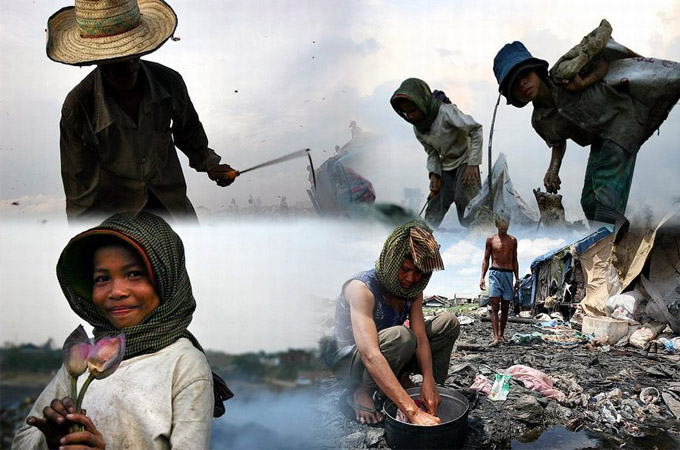
Most of the rubbish pickers at Steung Meanchey are either from Phnom Penh or came to Phnom Penh looking for work and ended up in the slums. Many of the approximately 600 children have parents or relatives who also work on the dump and look after them. Some of them go to school, but most do not – at least not on a regular basis -, and it is safe to say that virtually none of them ever completes a primary school education. The school fees are too high and their families need them to collect rubbish to contribute to the family income. Adults earn, on average, 4000 to 5000 riels (US$1.00 to $1.25) a day; children earn on average about half that amount. A whole family working together can actually earn more money than they could in the rural village from which they originally came. (source: The Centre for Children’s Happiness )
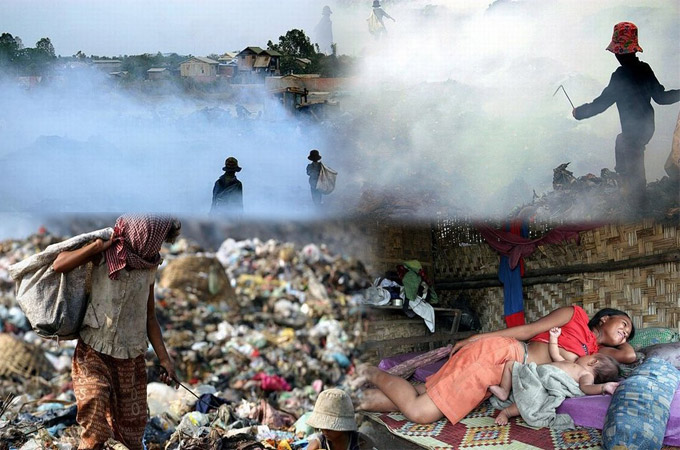
Luckily, there are some organizations trying to help those people. One of the biggest and most effective ones is French Pour un Sourire d’Enfant organization, they are located around 1km away from the landfill. They organize schools for several thousands of children from the dump, vocational trainings for the older ones. Every morning in the school near the dump they provide complimentary breakfast to several hundred children. They also try to help families living and working at the dump. They want them send children to school, not to work in the landfill, but families need money, that children can earn for them. So PSE provide rice to families, who promise to send children to school, not to work. Unfortunately, there are many cases when families take rice and still send children to work. They need money. Many children don’t go to school at all. Those who go, often after school wear their boots, take their hook and sacks and go to the Smoky Mountain to earn some money, for the family or for themselves.
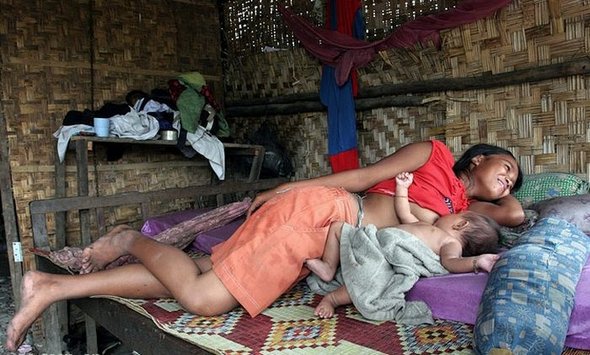
There also exist some orphanages taking care of orphans from the Stung Mean Chey dump. One of them is The Centre for Children to Happiness (CCH) established and managed by Mr Mech Sokha, who himself is an orphan, the sole survivor in his family of the Khmer Rouge genocide of 1975 to 1979. He started the orphanage in October 2002 with help of a Japanese woman, Ms.Osanai Mieko, a President of Japan Team of Young Human Power (JHP) organization. It provides a home and education to 30 children – 12 girls and 18 boys. The children are either orphans or belong to parents who cannot take care of them due to illness or disability. All of the children previously worked as garbage pickers at the Stoeng Meanchey landfill in Phnom Penh.
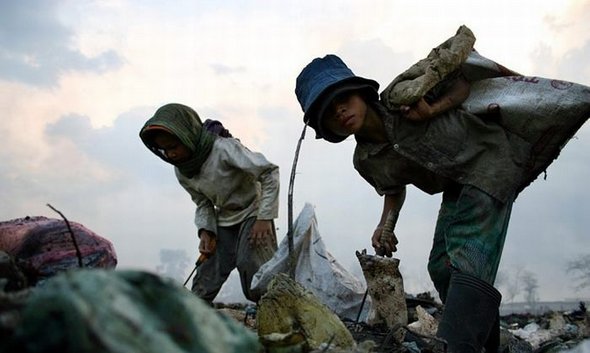
These photos tell their sad and intriguing story, a story of 2000 people and children living in slums and collecting rubbish to survive on a sole verge of existence, a story of greatest human struggle captured by the eye of the camera. These really put your life in perspective! I guess, now, you don’t feel so bad about going to work on Monday. Also, makes you want to help these poor people and children a better live they certainly deserve.
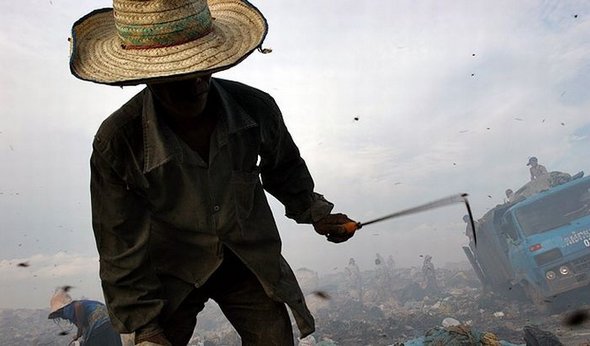
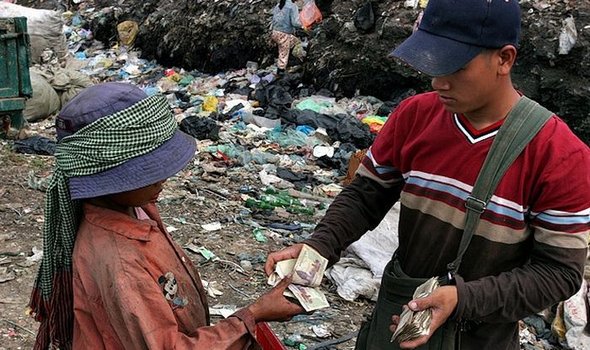
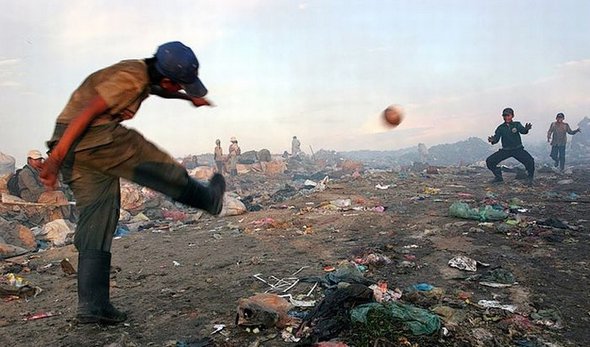
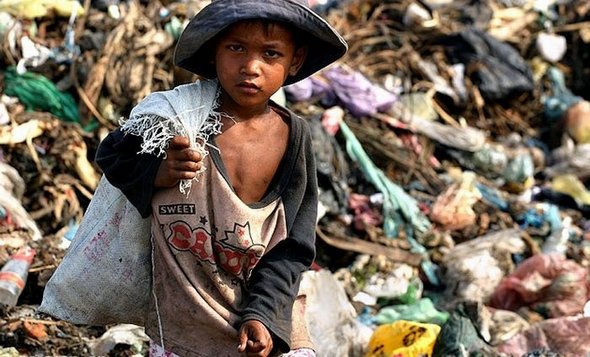
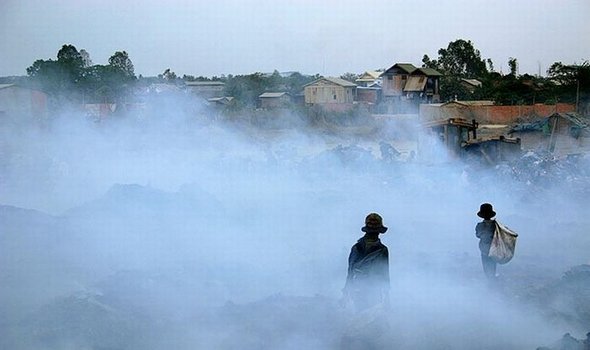
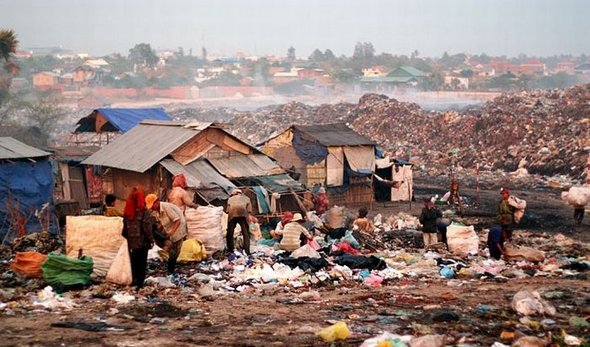
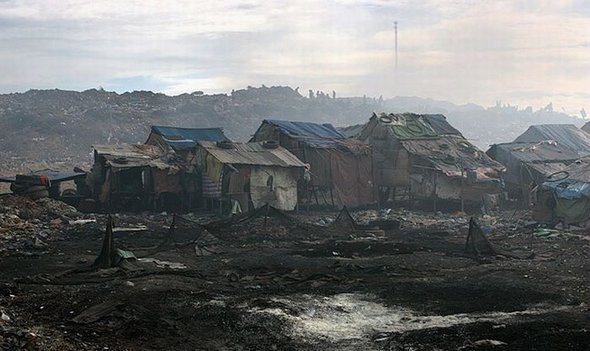
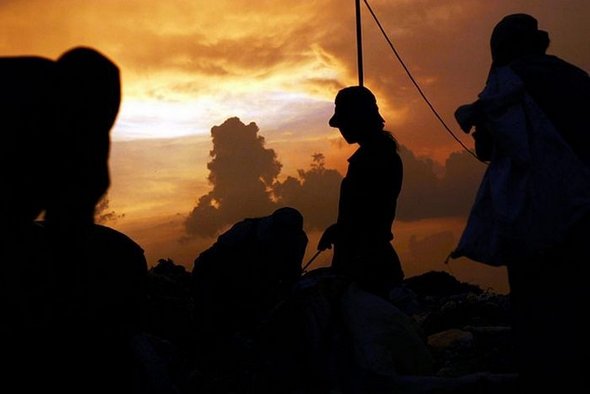
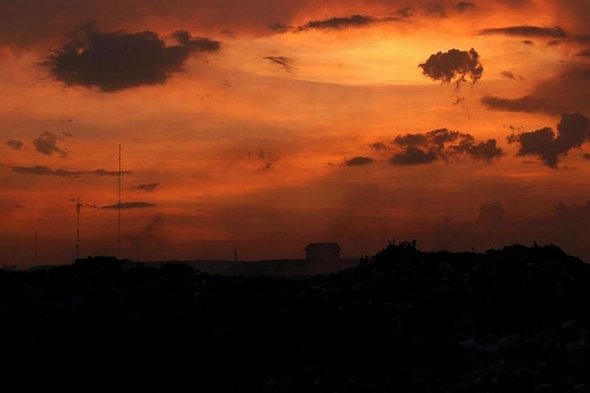
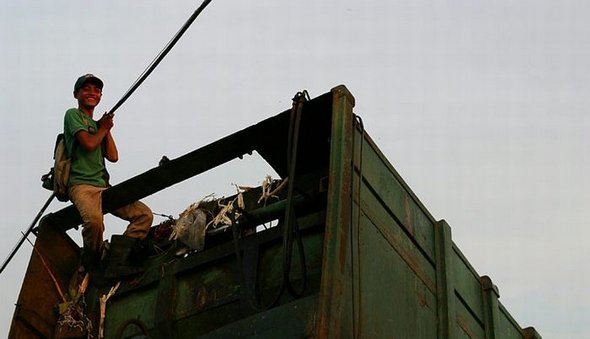
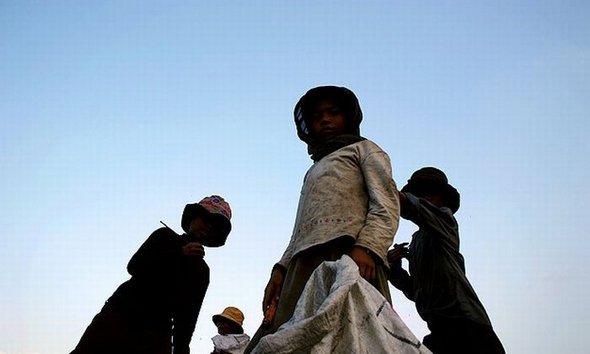
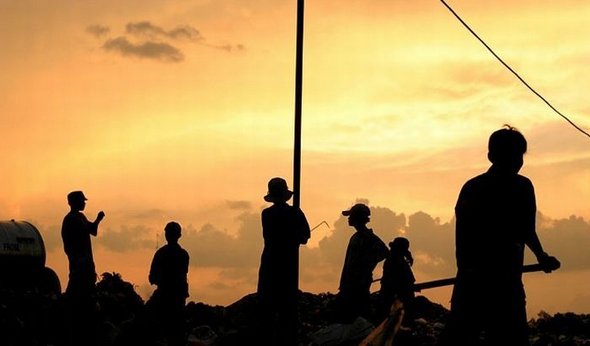
You MUST see cool photo galleries handpicked for YOU!
36 Amazing Silhouette Photographs
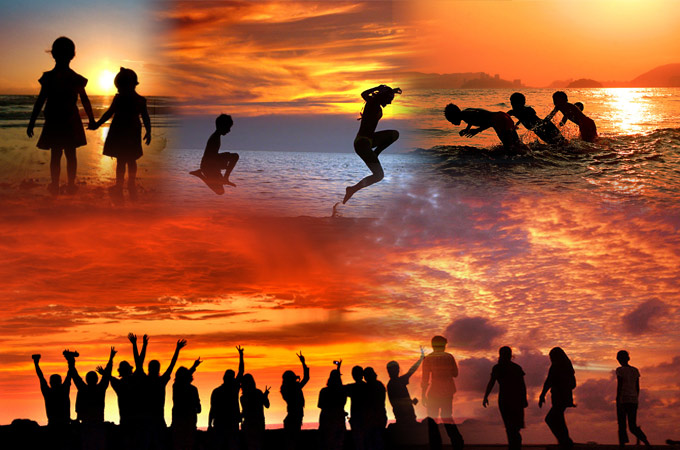
Silhouette Photographs brings joy and amazement, capturing breathtaking beauty of life. No wonder amazing silhouette photographs draw attention of people on-line all over the world. Everyone seems to be able to appreciate good silhouette photography and are happy to share the ones they captured with their camera themselves.
As result there are thousands of good silhouette photography to be found. Here before you is a gallery of 36 silhouette photographs we at Chill Out Point found the most beautiful of all. Enjoy this collection of photos and notice the transition of colors and ambient as you go through the gallery of these 36 breathtaking photos.

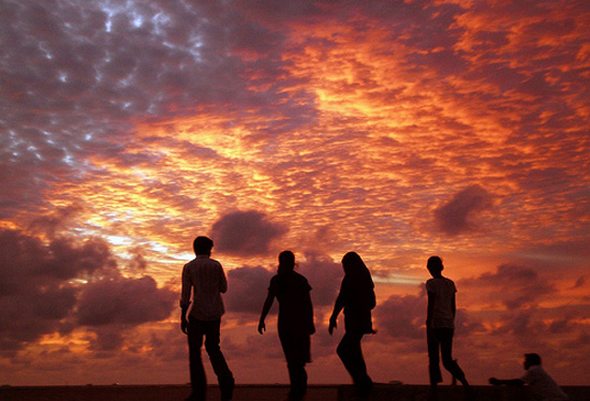
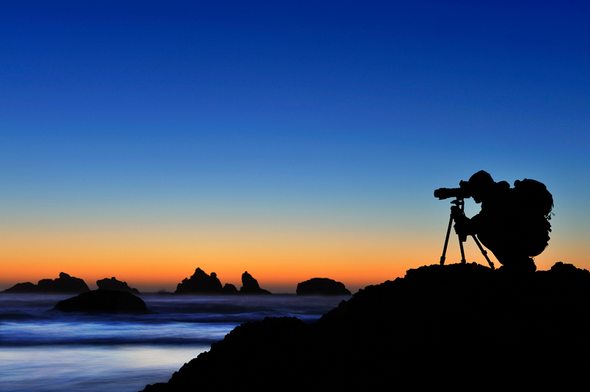
You MUST see cool photo galleries handpicked for YOU!
Souvenir Photography – Souvenirs fitting in the Real World
You do buy a lot of souvenirs when going on a trip or a holiday. Here is a suggestion of what you could do on your future vacations in order to spice things up. Take your souvenir and photograph it in such a way that it looks like the real tourist attraction it represents. This way you’ll have loads of fun and keep a nice memory. Also, a very fun way to spend your time sightseeing. I know I can’t wait to try this next time I travel on a vacation to Paris, New York or London etc.
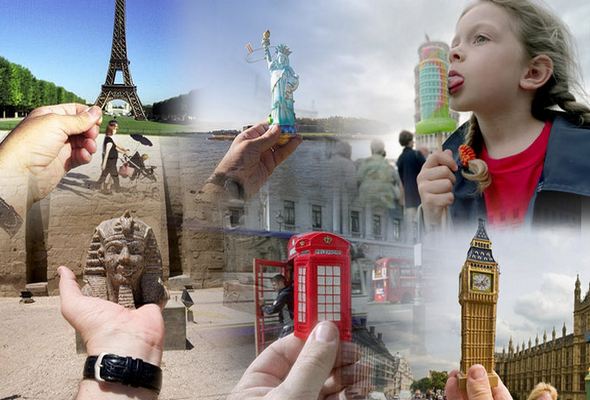
You can find more photos and related stories on Michael Huges’s blog and on Flickr Souvenirs Series
These are the shots of the Souvenirs book which has been beautifully designed and produced by fivefootsix in London. Read more

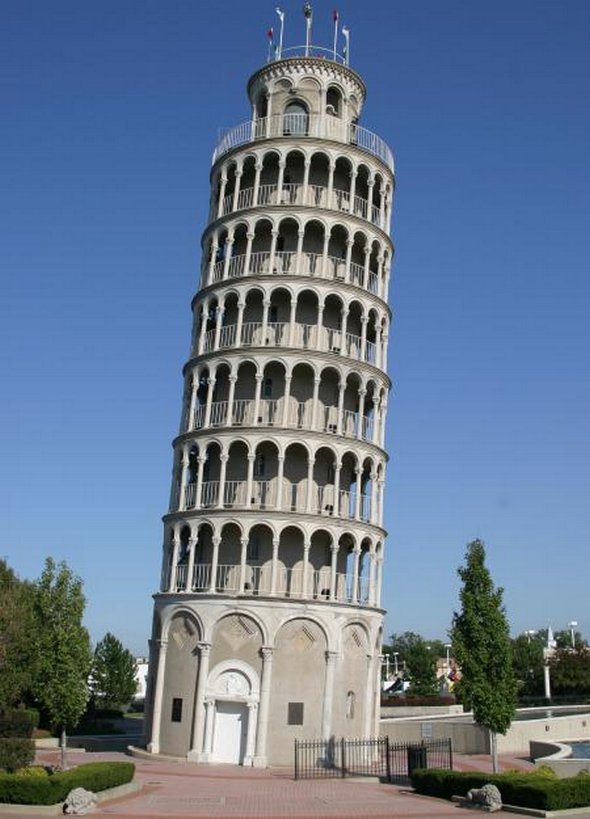 Image
Image 